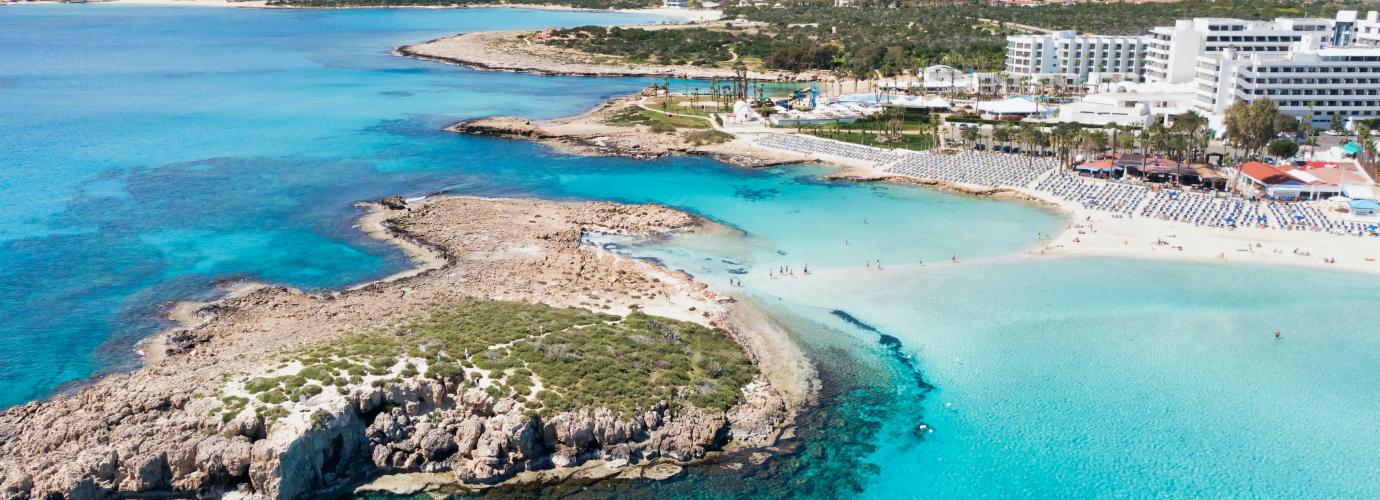Mission Possible - Researchers in schools in Cyprus
Cooperation between the Ministry of Education and Research and Innovation – RIF
In the framework of the European Project "Mission Possible", funded by the European Commission's horizon Europe research program and innovation, the "researchers in schools" program is being implemented again this year.
The main objective of the program is to increase the contact and interaction of students and teachers with researchers. It is noted that the program is implemented in the framework of the European project "Mission possible: researchers on board for an inclusive and sustainable future» funded by the European commission under the program EU Horizon Europe for research and innovation 2021-2027.
Within the framework of the program, visits will be organized during the academic year 2024-2025 by researchers (working in universities, research centers and private enterprises) to schools of primary, secondary general and secondary technical and vocational education and training, with the aim of presenting in a simple and direct way to students the importance of science, research and innovation, as well as the profession of the researcher as a professional choice. In the context of these visits, the presentations will be relevant to the thematic areas of the European missions "cancer", "adaptation to climate change including social transformation", "healthy oceans, seas, coastal and inland waters", "climate neutral and smart cities", as well as "soil health and food".
On the world days that are consistent with the above thematic fields, visits by the researchers will take place from October 16, 2024, to June 2, 2025.
Prevention of Child Sexual Abuse and Exploitation on the Internet
On April 10, 2024, the Ministry of Education, Sports, and Youth, through the Pedagogical Institute of Cyprus and the Educational Psychology Service, in partnership with the Pancyprian school for parents, held a conference on "Prevention of child sexual abuse and exploitation on the Internet". The conference aimed to raise awareness and foster discussion about the sexual abuse and exploitation of minors online. It sought to educate and sensitize teachers and parents/guardians, with the goal of enhancing strategies for the prevention and protection of children and youth from the physical and psychological harm that can result from such abuse and exploitation on the internet.
Participants had the chance to attend two notable presentations: one on the new methods of child and technology abuse for creating online sexual abuse imagery, and another on breaking the silence around discussing child sexual abuse and exploitation on the internet.
The Three-Year Action Plan to prevent sexual abuse and child exploitation
In October 2021, the Council of Ministers approved the Three-Year Action Plan (2021-2023), following a proposal submitted by the Deputy Minister of Social Welfare. The Plan aims at preventing sexual abuse and exploitation of children and is part of the National Strategy for Combating Sexual Abuse and Child Exploitation and Child Pornography.
Through the Action Plan, the Ministry of Social Welfare seeks, by developing actions and initiatives, to train and increase the knowledge and skills of the children themselves and their families, and also of the competent professionals and society at large. The aim is to develop mechanisms that will protect children from sexual abuse, and also to identify in time the signs of abuse and the increased risk factors.
The Action Plan is based on the pillar of primary prevention, aiming at tackling the problem by raising the awareness of the entire population and, consequently, the gradual reduction of incidents. It is also based on the pillar of secondary prevention, aiming at immediate dealing with related problems in the early stages.
The Action Plan includes three other pillars related to tertiary prevention, research and development of tools for recording incidents, as well as the evaluation of programs and actions with qualitative and quantitative criteria.
Operation of the unified database for gymnasiums attended by students with migrant biography
The Center for Educational Research and Evaluation (CERE) of the Pedagogical Institute, in collaboration with the department of migrant biography of the directorate of secondary general education of the Ministry of Education, Sports and Youth (MESY), continues this school year (2023-2024) the operation of the single database platform for students with migrant biography (MB) of the 1st, 2nd and 3rd grade of gymnasium. This will help the schools and the Ministry of Education in their efforts to improve the programs they offer.
Academic guidance
The responsibility for providing guidance in the curriculum in public schools rests primarily with the teacher and, in the case of secondary schools, with the school counselors. Depending on the nature of the problem, they may choose to involve the headteacher who may deem to involve the school inspector or the psychologists of the Ministry as well.
Psychological guidance
In the case of pupils with behaviour problems that are difficult to be managed by the school, the headteacher informs the inspector responsible for the school and, in turn, the psychologists of the Ministry.
Career guidance
At the primary level of education, there is no provision of vocational / career guidance for pupils. At the secondary level, career guidance and counseling are offered regularly to pupils by the Guidance and Counselling Service of the Ministry. In addition, in the last year of the gymnasium, (see Chapter 6) pupils are offered career and vocational guidance (0.5 per week) as part of their curriculum. The aim is to help pupils choose the field or combination of studies they wish to follow in the upper division.

